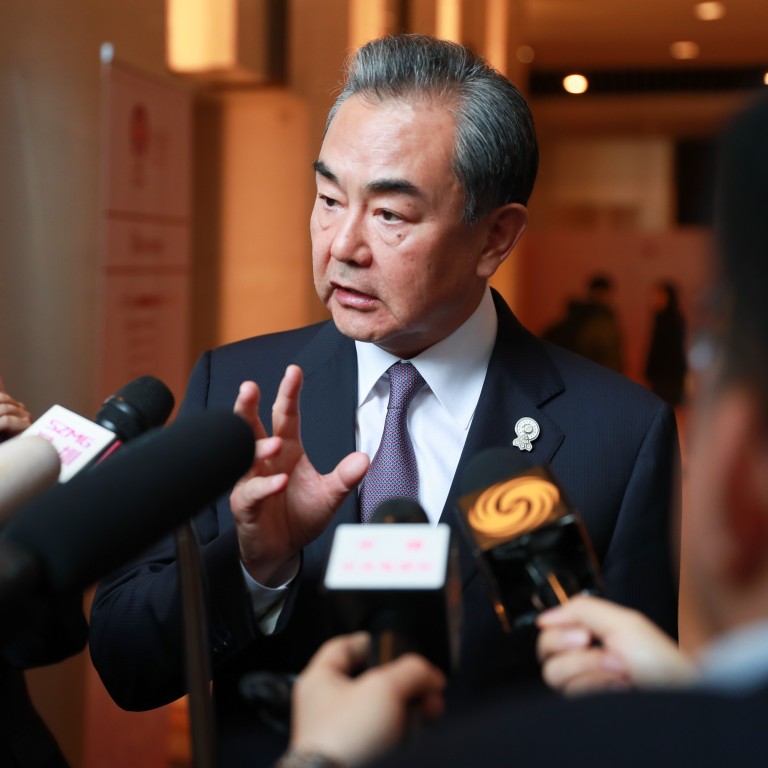
Donald Trump’s latest tariffs won’t resolve trade war, says Chinese Foreign Minister Wang Yi
- US president said he would impose new tariffs on US$300 billion of Chinese imports
- Adding more tariffs is not constructive, Wang says
“I am aware of [the announcement],” Wang told reporters on the sidelines of a meeting of Southeast Asian nations in Thailand.
“Adding tariffs is definitely not a constructive way to solve the economic and trade frictions. It is not a correct way.”
Trump said on Thursday that he would impose new tariffs on US$300 billion worth of Chinese imports after high-level trade talks that he said had produced too little in terms of concessions from Beijing.
US customs would impose “a small, additional” levy of 10 per cent on the imports, starting on September 1, he said.
Trump also said China had agreed to stop the sale of Fentanyl to the US, but had so far failed to do so.
Trump’s announcement came after trade negotiators of the two nations wrapped up their first face-to-face meeting since May in Shanghai on Wednesday. After the meeting, China said it would purchase more US agricultural products – based on its own domestic needs – while the US said it wanted further negotiations to result in “an enforceable trade deal”.
US-China cross-border investments hit 5-year low as decoupling deepens
On Friday, US Secretary of State Mike Pompeo – who was also attending the Southeast Asian nations forum in Thailand – hit out at China for what he called predatory trade practices and human rights abuses that harmed economic development.
“For decades, China has taken advantage of trade. It’s time for that to stop,” he said.
“China’s problems are home-grown, but President Trump’s confrontation of China’s unfair trade practices has helped shine a light on them,” Pompeo said in his speech to business executives and others in Bangkok.
“We’d like our trade matters resolved as quickly as possible. All we want is for China to compete on a level playing field with everyone else. This will benefit not only us, but you, and the global trading system, too.”
China’s economy was entering a “new normal of slower growth” that should serve as a warning to countries that may either try to emulate it or accept its investment, Pompeo said.
Some US business executives said they were highly concerned about Trump’s announcement.
Apple supplier lay-offs show trade war testing China’s businesses
“We’re concerned that today’s action will drive the Chinese from the negotiating table, reducing hope raised by a second round of talks that ended this week in Shanghai,” US-China Business Council President Craig Allen said in a statement.
“We’re concerned these additional tariffs will further erode our reputation as a reliable supplier and our farmers, workers and consumers will suffer more.”
Any possible retaliation from China would disproportionately impact US companies operating in the country, he added.
Additional reporting by Associated Press

